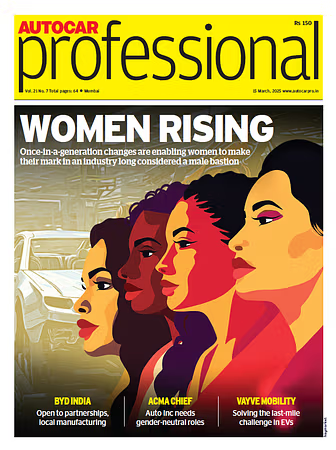ARAI conducts first-ever electric two wheeler crash tests in India
In what could be a global first, the move comes despite the absence of mandatory crash testing regulations for two-wheelers, both internal combustion engine (ICE) and battery electric vehicle.
Automotive Research Association of India (ARAI), a testing agency under the Ministry of Heavy Industries (MHI), has completed a series of three crash tests on electric two-wheelers at its facility in Pune.
In what could be a global first, the move comes despite the absence of mandatory crash testing regulations for two-wheelers, both internal combustion engine (ICE) and battery electric vehicle (BEV). ARAI said the tests were conducted for specific customers against standard industry benchmarks, utilising accelerometers and high-speed cameras to capture detailed crash data. A standard rigid barrier and a side pole were used in the tests.
While citing confidentiality agreements with the OEMs, ARAI declined to disclose the identities of the companies that requested the tests under the Right to Information (RTI) Act; the development marks a significant step towards potentially establishing safety standards for the burgeoning electric two-wheeler segment in India.
Automotive industry stakeholders believe this development could signal a future push for mandatory electric two-wheeler crash testing in India, potentially raising safety standards for a rapidly growing segment of the automotive market.
The development comes at a time when the Indian electric two-wheeler industry is fortifying its safety parameters after a spate of fire accidents in recent years. These incidents raised serious concerns about vehicle and passenger safety. The Indian government responded forcefully with new battery safety norms. This move, experts say, helped to eliminate many "fly-by-night" manufacturers who used cheap, poorly built batteries and other components in their electric two-wheelers.
A research report by Bain & Company and Blume Ventures suggests that the electric two-wheeler market penetration could grow from its current level of around 5% to about 45% by 2030. However, this growth hinges on efforts by Original Equipment Manufacturers (OEMs) to develop mid-segment scooters and introduce innovative entry-level motorcycles. While increasing sales volumes and penetration levels will undoubtedly make a significant difference in electric two-wheeler adoption, rider perceptions of safety remain the key factor. Fortunately, a positive start has been made.
RELATED ARTICLES
Hero MotoCorp Ventures into e-3W Market with Rs. 525 Crore Investment in Euler Motors
The Rs. 525 crore investment will consist of a mix of primary and secondary transactions. The primary investment will se...
TVS Motor Company Appoints Peyman Kargar as Head of International Business
Prior to joining TVS Motor, Kargar was the Global Chairman and President of INFINITI, the luxury brand of Nissan, where ...
Hindalco Unveils New Brand Identity, Plans Rs 45,000 Crore Investment
The new identity features a redesigned logo with a bold "H" and introduces the tagline "Engineering Better Futures," ref...






 17 May 2024
17 May 2024
 8557 Views
8557 Views





 Arunima Pal
Arunima Pal




